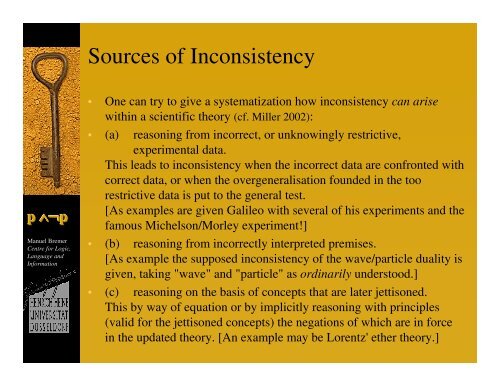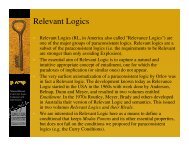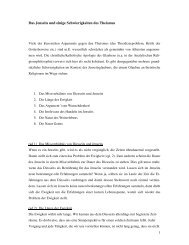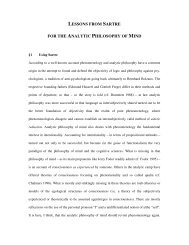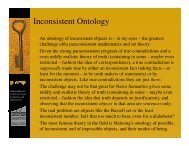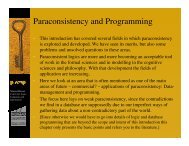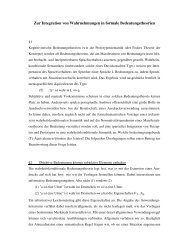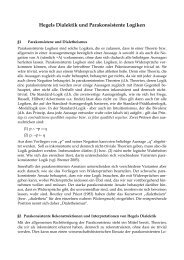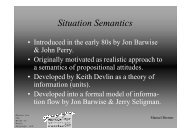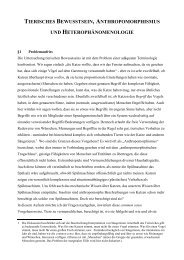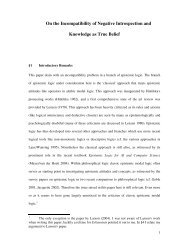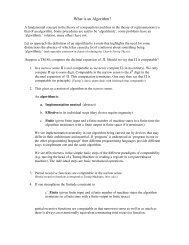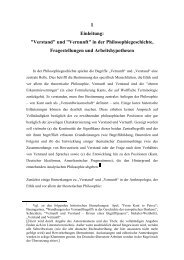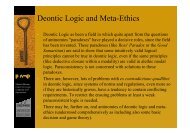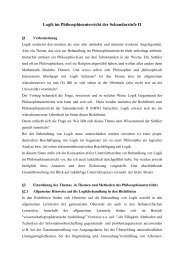Epistemology and Philosophy of Science - Bremer
Epistemology and Philosophy of Science - Bremer
Epistemology and Philosophy of Science - Bremer
Create successful ePaper yourself
Turn your PDF publications into a flip-book with our unique Google optimized e-Paper software.
p ∧¬<br />
∧¬ ∧¬p ∧¬<br />
∧¬<br />
Manuel <strong>Bremer</strong><br />
Centre for Logic,<br />
Language <strong>and</strong><br />
Information<br />
Sources <strong>of</strong> Inconsistency<br />
• One can try to give a systematization how inconsistency can arise<br />
within a scientific theory (cf. Miller 2002):<br />
• (a) reasoning from incorrect, or unknowingly restrictive,<br />
experimental data.<br />
This leads to inconsistency when the incorrect data are confronted with<br />
correct data, or when the overgeneralisation founded in the too<br />
restrictive data is put to the general test.<br />
[As examples are given Galileo with several <strong>of</strong> his experiments <strong>and</strong> the<br />
famous Michelson/Morley experiment!]<br />
• (b) reasoning from incorrectly interpreted premises.<br />
[As example the supposed inconsistency <strong>of</strong> the wave/particle duality is<br />
given, taking "wave" <strong>and</strong> "particle" as ordinarily understood.]<br />
• (c) reasoning on the basis <strong>of</strong> concepts that are later jettisoned.<br />
This by way <strong>of</strong> equation or by implicitly reasoning with principles<br />
(valid for the jettisoned concepts) the negations <strong>of</strong> which are in force<br />
in the updated theory. [An example may be Lorentz' ether theory.]


